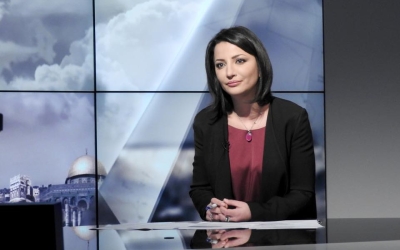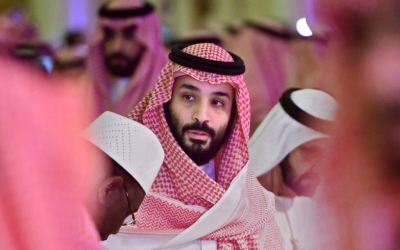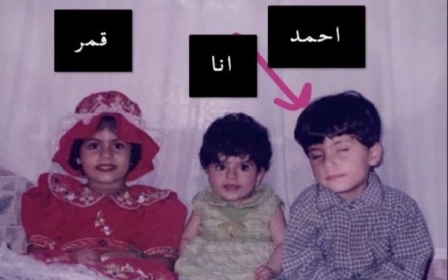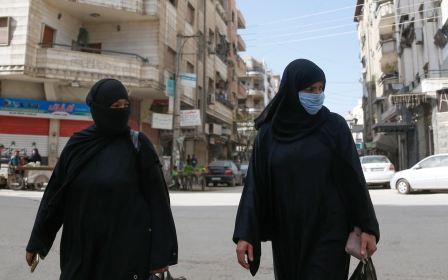US court issues summons for MBZ over hacking of Al Jazeera anchor via Twitter
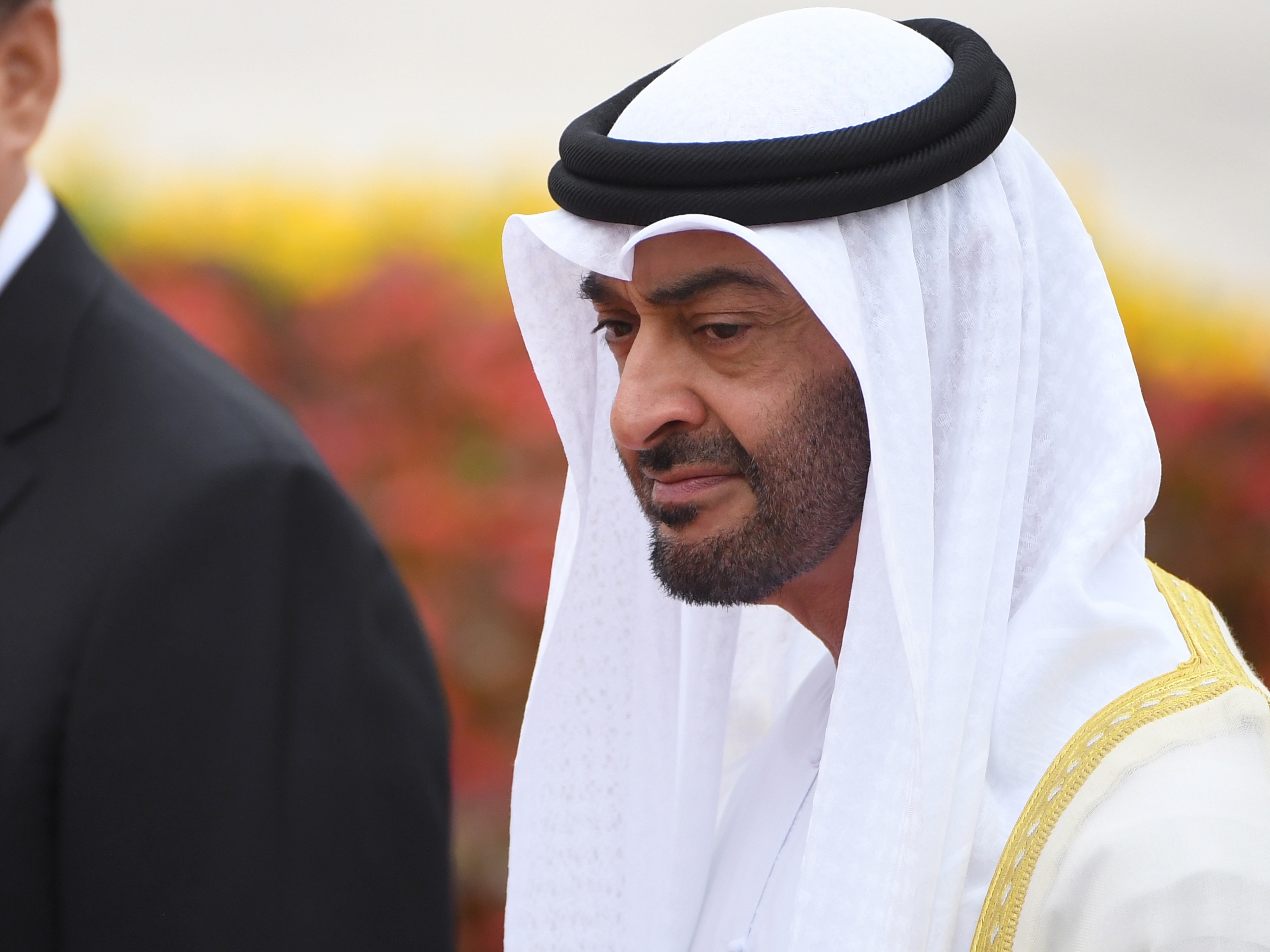
The crown prince of Abu Dhabi and top Saudi officials have received a summons to appear in a US court through Twitter, the same platform used by the Gulf states to allegedly target, harass, and defame a journalist suing them.
Lawyers acting on behalf of Al Jazeera anchor Ghada Oueiss told Middle East Eye that the summons had been sent to Mohammed bin Zayed, also known as MBZ, as well as a number of US operatives who are accused of hacking her phone and disseminating information, including manipulated content, on social media.
Using the microblogging platform to serve court documents is rare. However, the method has previously been used in US cases when all other forms of service have been exhausted.
The most prolific case involved Saudi Crown Prince Mohammed bin Salman, also known as MBS, who was served a summons via WhatsApp in October, in a lawsuit filed against him by ex-Saudi intelligence operative Saad al-Jabri.
"What we did in this case - obviously because there are some challenges to service the process in summons - is we went to the court," Daniel Rashbaum, an attorney for Oueiss, told MEE.
After asking for an alternative means to serve the defendants, including MBZ, Rashbaum's firm filed a motion to do so via Twitter.
"In our motion, we actually indicated that one of the ways we intended to effectuate was through Twitter, and the court ordered that that was allowable," Rashbaum said.
The summonses were previously issued to the royals and the other defendants in the case through mail last month but were then delivered through the social media platform last week.
'Like having an intruder in your home'
Oueiss, a prominent television anchor with millions of followers on social media, has accused the two leaders of orchestrating a multi-tiered operation against her, including the hacking of her phone and using US-based operatives to spread false information.
In April, a series of photos Oueiss had saved on her phone were leaked on social media allegedly after her phone was hacked. One of the pictures was doctored to make the presenter appear nude.
"It's not enough that they just release private images they stole, but they doctored them to make me look naked and organised thousands of attacks against me with horrible slurs," Oueiss told MEE.
She said that when she had realised what had happened she felt "shock and horror".
'This attack is the worst type of invasion of privacy'
- Ghada Oueiss
"It was gut-wrenching. I felt violated and was afraid for my life. I saw what happened to my friend Jamal [Khashoggi] and was reading vicious attacks and threats against me online and thought that could happen to me.
"This attack is the worst type of invasion of privacy. It’s like having an intruder lurking in your home for months watching and stealing things, then releasing information or images whenever they like."
The lawsuit outlines forensic evidence - obtained through a detailed look into Oueiss' phone - that claims the UAE-based cybersecurity firm DarkMatter hacked into the device in an operation that was "carried out at the behest of the UAE regime and Defendant MBZ".
"I believe the attack was part of a concerted campaign against me and the many other critics of the regimes organised by the leadership of KSA and UAE acting at the instruction of MBS and MBZ," she said.
"As the case unfolds and we obtain more evidence, I suspect we will be able to add more names to the list of those who perpetrated these crimes."
MEE repeatedly reached out to the UAE and Saudi embassies for comment, but did not receive a response by the time of this article's publication.
US-based operatives
The lawsuit argues it has jurisdiction to pursue legal action against the Abu Dhabi crown prince because parts of the alleged operation took place in the United States.
According to the suit, the de facto ruler of the UAE allegedly led the campaign of defamation through the use of US-based operatives.
The filing names three of these operatives, as well as the Saudi Arabian Cultural Mission, which is based in the US state of Virginia.
The lawsuit highlights the history of the individual's Twitter accounts, which show that the timing in which they began attacking Oueiss and also praising Saudi Arabia correlates with the hacking of her phone.
"The American people need to understand that what they see online from other Americans praising MBS or attacking me and other regime critics is not real. It is part of an elaborate propaganda campaign being orchestrated by Saudi Arabia, UAE, and others," Oueiss said.
Rashbaum, Oueiss' lawyer, said that he believed they would be able to try the defendants under US jurisdiction.
"Hypothetically speaking, you could have jurisdiction over someone through a phone call," Rashbaum said.
"And so it's our position that we'll have various ways to get jurisdiction over these defendants, even the ones that aren't physically present in the jurisdiction."
Some of the defendants have returned their summons and asked for an extension of time to respond. Rashbaum said he could not go into further details.
Oueiss said that her end goal of this case is justice, "not just for myself, but for all other victims of this type of criminal behaviour" done at the behest of MBZ and MBS.
"My hope is that by bringing this lawsuit I can expose their behaviour and stop the attacks not just on me but all women and journalists who are just trying to do our job of reporting the truth.
"I am hoping to expose those who attacked me so the world understands what is really going on online. That the rulers of two countries – self-proclaimed US allies – are leading a campaign of terror against journalists and activists by stealing their private information and images and spreading attacks and hate against them online."
Middle East Eye delivers independent and unrivalled coverage and analysis of the Middle East, North Africa and beyond. To learn more about republishing this content and the associated fees, please fill out this form. More about MEE can be found here.


